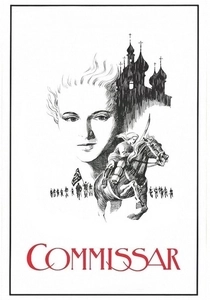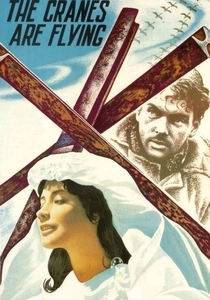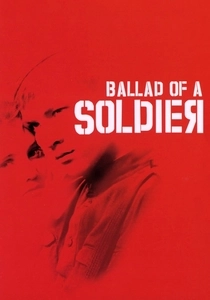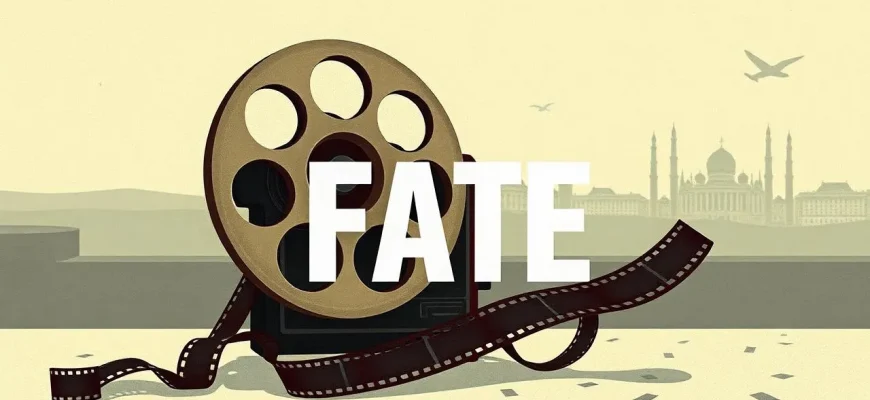Soviet cinema has always been rich with stories that delve into the complexities of human existence, fate, and destiny. This collection showcases ten films that not only reflect the socio-political landscape of their time but also explore the universal themes of fate, choice, and the human condition. These films offer a window into the Soviet era's cultural and emotional depth, providing viewers with a unique perspective on life's unpredictable journey.

The Commissar (1967)
Description: A pregnant female commissar during the Russian Civil War is forced to stay with a Jewish family, leading to a profound exploration of fate, duty, and human connection.
Fact: The film was banned in the Soviet Union for 20 years due to its portrayal of Jewish life.
 Watch Now
Watch Now 
The Cranes Are Flying (1957)
Description: This poignant war drama tells the story of Veronika, whose life is irrevocably altered by the war, showcasing how fate can change one's path in an instant. It's a testament to the resilience of the human spirit.
Fact: The film won the Palme d'Or at the Cannes Film Festival in 1958, making it one of the first Soviet films to gain international acclaim.
 30 Days Free
30 Days Free 
Ballad of a Soldier (1959)
Description: A young soldier, Alyosha, is given a brief leave to visit his mother, but his journey becomes a metaphor for the twists of fate and the sacrifices of war. The film captures the essence of human kindness amidst chaos.
Fact: The film was nominated for an Academy Award for Best Original Screenplay, highlighting its universal appeal.
 30 Days Free
30 Days Free 
The Irony of Fate (1975)
Description: A comedy-drama where a man's drunken mistake leads to a series of fateful encounters, exploring themes of love, destiny, and the randomness of life's events.
Fact: It's a New Year's Eve tradition in Russia to watch this film, making it a cultural phenomenon.
 30 Days Free
30 Days Free 
The Ascent (1977)
Description: Set during WWII, this film follows two Soviet partisans on a mission that turns into a harrowing journey of survival and moral dilemmas, illustrating how fate can test one's character.
Fact: Larisa Shepitko, the director, tragically died in a car accident shortly after the film's completion.
 30 Days Free
30 Days Free 
The Mirror (1975)
Description: Andrei Tarkovsky's semi-autobiographical masterpiece weaves together memories, dreams, and historical events to explore the fate of a man and his country, reflecting on life's profound questions.
Fact: The film was initially met with mixed reactions in the Soviet Union but has since been recognized as a cinematic masterpiece.
 30 Days Free
30 Days Free 
The Thief (1997)
Description: Set in post-war Soviet Union, this film follows a young boy and his mother as they navigate life with a charming but deceitful man, exploring themes of trust, betrayal, and the shaping of one's fate.
Fact: The film was Russia's submission for the Academy Award for Best Foreign Language Film in
 30 Days Free
30 Days Free 
The Forty-First (1956)
Description: A Red Army sniper falls in love with a White Army officer she is supposed to execute, highlighting the unpredictable nature of fate and the complexities of love in wartime.
Fact: The film was remade in 1975, but the original is often considered superior for its raw emotional depth.
 30 Days Free
30 Days Free 
The Seventh Companion (1967)
Description: A story of six convicts escaping from a Siberian prison camp, their journey becomes a metaphor for the struggle against fate and the quest for freedom.
Fact: The film was based on a novel by Vadim Kozhevnikov, reflecting the harsh realities of the Gulag system.
 30 Days Free
30 Days Free 
The Return (2003)
Description: A father returns after a long absence to take his two sons on a mysterious journey, exploring themes of fate, fatherhood, and the search for identity.
Fact: The film won the Golden Lion at the Venice Film Festival, marking a significant achievement for Russian cinema.
 30 Days Free
30 Days Free 








